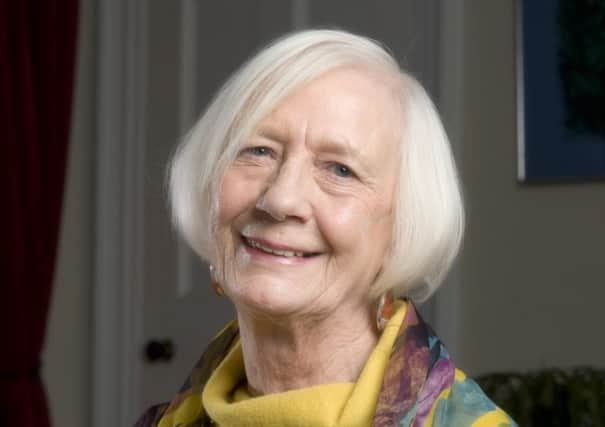Reliving the life of folk legend Dolina Maclennan


More than half a century later, on 8 November, Maclennan, now renowned as a Gaelic singer and actor, storyteller and tireless activist, will give the Hamish Henderson Lecture at Edinburgh City Chambers, as part of the Carrying Stream Festival, Edinburgh Folk club’s annual celebration of the late Henderson’s life and legacy. A couple of days earlier in the festival, on the 6 November, she appears at the Scottish Storytelling Centre for the Lowland launch of her memoir Dolina: An Island Girl’s Journey, of which more later.
In the meantime, the Carrying Stream programme features concerts at the Pleasance Cabaret Bar, with guests including Northern-Ireland-born troubadour Maurice Dickson, Appalachian fiddler Bruce Molsky and Canadian singer-songwriter James Keelaghan with multi-instrumentalist Hugh MacMillan. Other events include a singers’ night with Margaret Bennett, Judy Dunlop and Mick Ryan and, at the Storytelling centre, a “Songs of War and Peace” night hosted by Nancy Nicolson.
Advertisement
Hide AdBut to return to that book, I have to declare an interest, as Dolina: An Island Girl’s Journey emerged from recorded conversations Maclennan had with me and Dr Stuart Eydmann, a member of the Whistlebinkies and current traditional artist in residence at Edinburgh University’s department of Celtic and Scottish studies.
The book really had its origins in the launch party for another volume, some years ago, when Doli was regaling us with anecdotes from her life. Someone suggested, perhaps rashly, that we should be recording all this with a view to archiving it. So we started meeting at Doli’s flat, joined in the earliest stages of the project by her friend, the film producer Douglas Eadie. Initially at least, these sessions were unstructured, usually taking the form of often highly tangential conversations, while rummaging through boxes of memorabilia.
Douglas, whose Pelicula Films is behind the TV show Transatlantic Sessions, went on to make Dolina, broadcast on BBC Alba in 2012. In the meantime the Lewis-based Islands Books Trust expressed interest, so we changed tack, trying, not always successfully, to structure our interviews more and to shuffle the transcripts of these conversations into chapters.
As the book gradually took shape, it became clear what a remarkable life we were chronicling, from a wartime childhood in a still strongly self-contained and Gaelic-speaking rural community in Lewis to her becoming a pioneer pub folk singer.
Her recollections of the Howff and Waverley – crucibles of the emergent folk revival – make fascinating reading, such as the time the ballcock in the Howff’s toilets broke and a teenage would-be guitar wizard by the name of Bert Jansch was dispatched to steal a replacement from a neighbouring café.
There are memories, too, of her friendships with Norman MacCaig, Hugh MacDiarmid and other notables from the Scottish literary revival, and an acting and Gaelic broadcasting career.
Advertisement
Hide AdHer friendship with the genial patriarch of the Scottish folk revival places her in good stead to give the Hamish Henderson lecture, which she’s calling simply Hamish – My Big Pal.
For his part, the late Henderson recalled the wide-eyed island girl arriving in Edinburgh, “like a shepherdess, trailing these songs of gold from ancient times”.
•Carrying Stream Festival, 5-12 November, www.carrying streamfestival.co.uk/csf14.htm | www.theislandsbooktrust.com